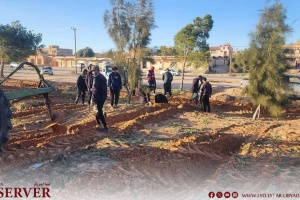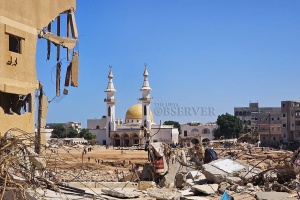By Mohamed Abaid, Independent Libyan Analyst
Political Maneuvers and Electoral Challenges-The-Struggle for Control in Libya’s Municipalities

Despite the numerous conflicts between Dbeibeh and the mayors of the municipalities in the western region, especially the Amazigh, over the division of security directorates, the mayors still refuse to comply with Haftar.
At the beginning of this year, the Hamad government and parliament attempted to establish new municipalities, offering them financial incentives and promises of development. They capitalized on the Amazigh's discontent with the Dbeibeh government by providing their municipalities with financial support. However, this plan failed as the newly established municipalities did not achieve any impact, and the Amazigh withdrew their support.
Following this, Plan B was initiated, which could potentially deal a significant blow to the Dbeibeh government if successful. This plan aims to hold elections in all municipalities under the Dbeibeh government's control. If new personalities win the elections, they can be easily swayed with money. Currently, the Dbeibeh government lacks funds, but Haftar can obtain money by extracting loans from commercial banks within his government's jurisdiction and from the National Oil Corporation, as well as through fuel smuggling.
On June 4th, the High Electoral Commission unexpectedly announced elections in 60 municipalities, and on June 9th, a press conference was held to announce the start of the elections.
The Dbeibeh government, which did not take this process seriously, relied on the Commission's lack of voter data and its inability to conduct the elections for financial reasons.
However, the Commission decided to create a new voter database and secured funding from Haftar's government.
At this point, the Dbeibeh government has no option but to pursue legal means to annul the elections or support its allies in the municipalities to win the seats.
The Commission did not take enough time to prepare, resulting in very low voter registration turnout.
The minimum outcome Haftar could achieve from this is creating confusion within the municipalities in the western region.
Will the elections succeed? I expect them to fail, but they will create tension in the region.
Will Dbeibeh wake up and seek funding for his government to ensure the loyalty of the municipalities in the western region?
The available option for Dbeibeh to compete with Haftar's spending is to attract foreign investments, especially from China.
The country's situation continues to be part of an international, regional, and local conflict.
Disclaimer: The views and opinions expressed in this article are those of the writer, and do not necessarily reflect those of the Libya Observer





